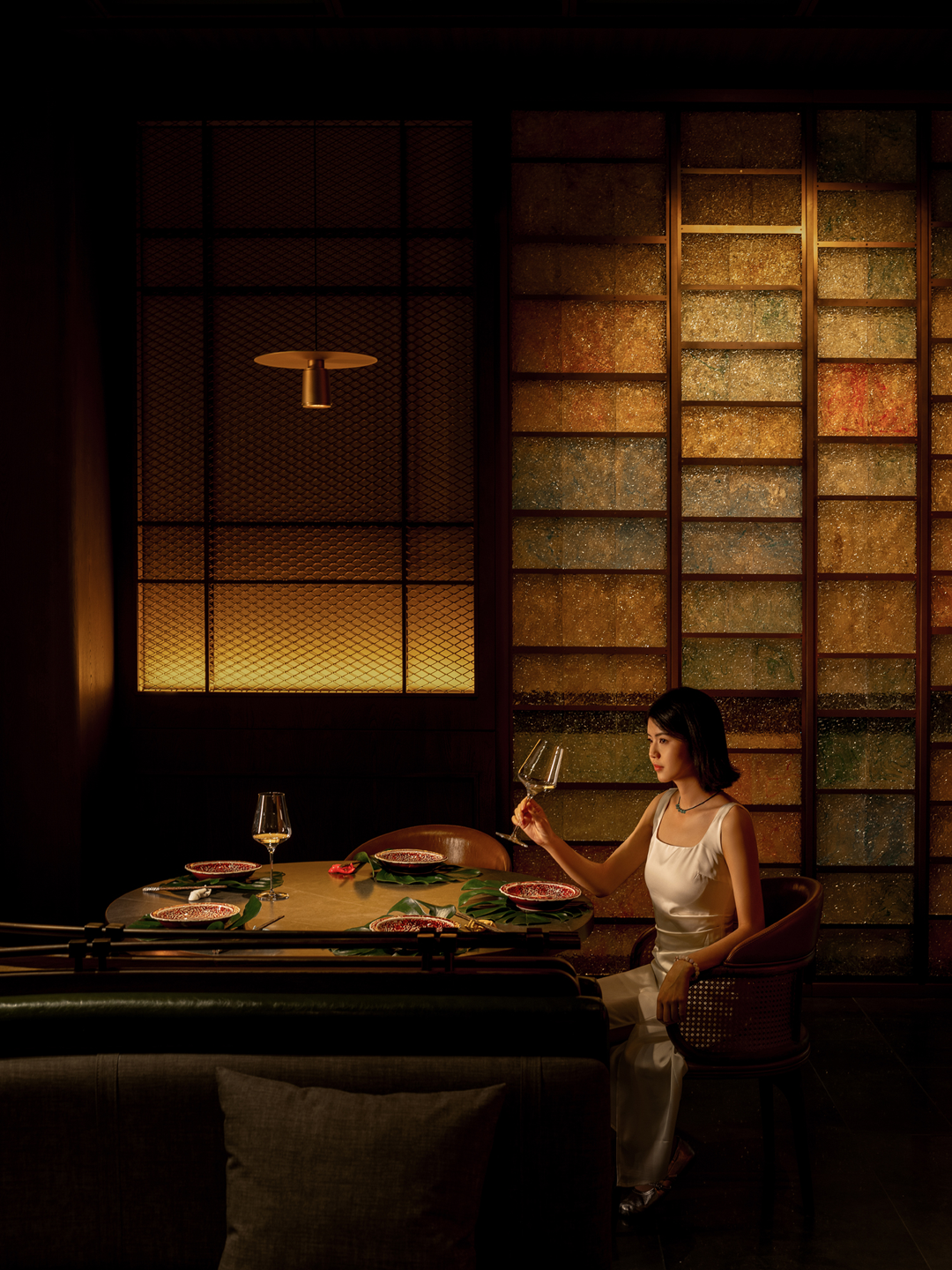Capitol Reef Desert Dwellings / Imbue Design
2018-02-25 21:50
Architects: Imbue Design Project: Capitol Reef Desert Dwellings Location: Capitol Reef, Utah, United States Living Space: 2,550 Square Feet Photographs: Courtesy of Imbue Design
建筑师:注入设计项目:国会山礁沙漠住宅地点:犹他州国会礁,美国居住空间:2,550平方英尺照片:Inbue Design提供
Description by architect: Tucked away in a remote desert location just outside of the U.S. Capitol Reef National Park is a plot of land with some of the most impressive rock formations in the world. The owners of the plot, two warmly intelligent professionals with an affinity for minimal design, came to Imbue requesting the design of a small campus of structures where they could drink in the raw desert beauty. Their objectives were simple and deliberate: 1- design a main residence with guesthouse and studio outbuildings 2- fill them with intimate nooks and gathering spaces that showcase desert vegetation and rock formations 3- simultaneously integrate the dwellings into the landscape while also giving them presence 4- craft the project on a considerably modest budget.
建筑师的描述:藏在美国国会礁国家公园外的一个偏远的沙漠位置是一块土地,有一些世界上最令人印象深刻的岩层。这片地块的主人是两位热情的、聪明的专业人士,他们对最低限度的设计很有亲和力。他们开始要求设计一个小小的建筑校园,在那里他们可以在原始的沙漠美景中畅饮。他们的目标是简单而周密的:1-设计一个主要住宅和宾馆和工作室外建筑2-填补他们亲密的角落和聚集空间,展示沙漠植被和岩石3-同时将住宅融入景观,同时也给予他们的存在4-工艺项目的相当有限的预算。
The solution comes by way of multiple shed roof forms extruded along ‘L’ shaped paths. The ends of each volume open with expanses of glass facing toward specific formations and trees.
该解决方案通过沿L形路径挤出的多个棚顶板形式提供。每个体积的末端都是开放的,玻璃的膨胀面向特定的形成和树木。
Along the lengths of the volumes horizontal windows frame panoramic desert horizons of red rock and azure sky.
沿着体积的长度,水平的窗户框架,红色的岩石和蔚蓝的天空的沙漠地平线全景。
The forms are meant to echo the surging red rock formations that protrude out of the horizontal desert landscape. Like the stone megaliths, the sharp lines of the house rise above a shroud of vegetation to be juxtaposed against a twisted backdrop of bristly juniper trees.
这些形态是为了呼应从水平沙漠景观中突出出来的汹涌的红色岩层。就像巨石一样,房屋的锋利线条耸立在一层植被之上,与扭曲的松树背景并排。
Many of the site’s trees have inhabited the desert landscape for centuries, a few for over a millennium. Thus great care was taken to maintain the existing vegetation through thoughtful site selection and construction best management practices.
该遗址的许多树木已经在沙漠景观居住了几个世纪,其中有几棵已经超过了千年。因此,通过深思熟虑的选址和建设最佳管理做法,对维持现有植被采取了极大的注意。
Through strategic planning the structures’ forms engage the ancient trees as much as possible, within standards of wildfire safety, and maintain all major vegetation. The ‘L’ shaped forms cradle the vegetation to integrate the resident’s experience with the immediately surrounding plant and animal life.
通过战略规划,这些结构形式尽可能多地将古树纳入野火安全的标准,并保持所有主要植被。“L”形成了植物的摇篮,将居民的经验与周围的植物和动物生活结合在一起。
Materials were selected to reflect the aging process of native rock and trees. Corrugated Corten panels and cedar siding naturally age to a self-protective patina baked on by the arid heat and desert sun. This allows the home to age over time as a direct result of the desert’s extreme weather. The natural aging process ensures minimal maintenance as well as full integration into the desert scenery.
材料的选择反映了天然岩石和树木的老化过程。瓦楞纸Corten板和雪松壁板自然老化到一个自我保护的帕蒂纳烘焙在干旱的炎热和沙漠的太阳。这使家庭随着时间的推移而老化,这是沙漠极端天气的直接结果。自然老化过程确保最低限度的维护以及完全融入沙漠景观。
Given its remoteness, the home was crafted by local contractors and artisans using local materials where possible.
由于地势偏僻,这座房子是当地承包商和工匠在可能的情况下使用当地材料建造的。
 举报
举报
别默默的看了,快登录帮我评论一下吧!:)
注册
登录
更多评论
相关文章
-

描边风设计中,最容易犯的8种问题分析
2018年走过了四分之一,LOGO设计趋势也清晰了LOGO设计
-

描边风设计中,最容易犯的8种问题分析
2018年走过了四分之一,LOGO设计趋势也清晰了LOGO设计
-

描边风设计中,最容易犯的8种问题分析
2018年走过了四分之一,LOGO设计趋势也清晰了LOGO设计




































































